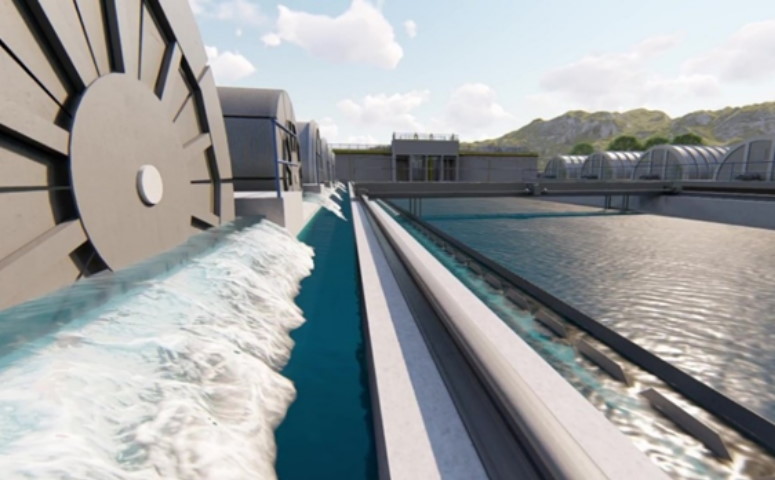The project to expand and improve the drinking water and sanitary sewage system of the city of Matagalpa, is aimed at solving the current supply and installation problems affecting important sectors of the population and generating the installed capacity needed to meet the demand of the population expected at the end of the 2023-2043 design period.
AP component
The main scope of works carried out in this process are:
- Waterworks: Conventional side outlet on the right bank of the Tuma River, which includes one (1) pumping station.
- A drive line from the intake to the PTAP site with three (3) pumping stations in series.
- PTAP(1) (potable water treatment plant) with capacity of Q=790.9 lps. Which is designed in Phase 1: 4 modules Phase II: One (1) module
- Construction of 3 vitrified steel storage tanks of 7,023m3 capacity to store a total volume of 21,071m3.}
- A gravity conduction line to connect the stored volume to the PTAP output with the manifold ring pipe.
- Extension of the internal distribution network to the different sectors of the City of Matagalpa.
AS component
The main scope of works carried out in this process are:
- Collection Network, 77.85 Km of pipes with diameters Ø150 mm to Ø900 mm, for main and secondary collectors. With 7,654 home connections.
- Pumping stations, known as EBAR#1 Nueva – Sister Maria Romero; EBAR#2 New – Habitat and EBAR#3 New – Waswali.
- Drive lines: HDPE 5: Ø650mm (EBAR 1), Ø700mm (EBAR 3) and PVS SDR-17 Ø100mm (EBAR 2).
- Wastewater Treatment Plant (WTP) + Related Works. Which is designed in Phase 1: 3 modules Phase II: One (1) module
Diagnostic Consulting, Studies and Designs:
The studies will be carried out in four (4) phases and their results will be reflected in seven (7) reports, as follows:
Phase I: Diagnosis of the current situation of the drinking water and sanitary sewerage system.
Output 1: Initial report. Work plan. Report of the study area and methodologies, cartography, topography.
Output 2: Population and housing report and Topographic report.
Output 3: Diagnostic report.
Phase II: Feasibility studies for drinking water and sewage systems.
Output 4: Conceptual report on alternatives.
Output 5: Feasibility report on drinking water and sanitation projects.
Phase III: Final design of drinking water and sanitary sewerage systems.
Output 6: Final design report for the drinking water and sewage projects.
Phase IV: Tender Documents

